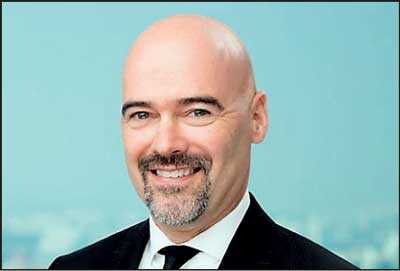Tuesday Feb 17, 2026
Tuesday Feb 17, 2026
Wednesday, 6 March 2019 00:00 - - {{hitsCtrl.values.hits}}
By Didier von Daeniken
One of the most exciting trends to come out of wealth management in the last couple of years is the growing interest among clients to invest sustainably, and create a positive social and economic impact. 
This was hugely evident at Davos this year where sustainability was one of the biggest topics brought up by our clients as well as business and political leaders. It was also clear that the interest spans across all ages, with the children of our clients – brought to Davos by us for our Future Global Leaders Alumni Program – being as engaged as many of their parents.
It’s something I see every day as a private banker: Affluent and high net worth individuals are increasingly thinking about their role as responsible global citizens. With the risks from major challenges, such as climate change and lack of access to healthcare and education, becoming ever clearer, our clients are looking actively for opportunities to effect positive change.
Bridging the SDG financing gap
While governments and multi-lateral initiatives work to provide scalable solutions to the major issues of our time, these efforts are unfortunately not enough to eliminate them. The United Nations estimates that $ 5-7 trillion is needed annually to achieve the Sustainable Development Goals (SDGs), with a significant and persistent financing gap of an estimated $ 2.5 trillion per year in developing countries alone.
I believe financial institutions and investors have a critical role to play in raising and directing new capital towards the SDGs.
One example is access to healthcare, which is so fundamental to the prosperity of individuals and communities. At a global level, huge strides have been made globally to eradicate polio, reduce child mortality and tackling HIV. However, the global health market is still subject to substantial failings, and overcoming them requires continued innovation and participation from the private sector.
Financial services firms have been eager to front-run the opportunity, developing instruments to direct funds towards healthcare initiatives in underserved markets. An investor looking to help improve healthcare in a certain country can invest his money for a financial return and at the same time, help to bridge a gap for positive social impact.
Beyond healthcare, sustainable and impact investing solutions now cover a range of sectors from infrastructure financing to initiatives to tackle climate change. More broadly, companies are rapidly incorporating ESG (Environmental, Social and Governance) criteria in their business models, to signal the long-term viability of their business models to investors and consumers.
The power of information sharing
As wealth managers, we connect our clients to opportunities and equip them with the information they need to make good decisions. Our ‘Asia Sustainable Investing Review 2018’ showed that 86% of investors lack a clear understanding of the impact and returns that sustainable investing can deliver. That’s why we also have a responsibility to educate and inform. For instance, commonly-held myths such as an unavoidable trade-off between financial gain and positive impact can be debunked by the strong performance of many sustainable investing solutions.
And as leaders in financial services and wealth management, it’s important for us to collaborate, to share information and experiences, and harness data and insights, so that together, we can shape the future of sustainable investing. Our clear aim should be to turn this from a niche investment avenue into a core part of investor portfolios, helping to drive private funds towards the success of the SDGs.
(The writer is Global Head of Private Banking and Wealth Management at Standard Chartered Bank.)